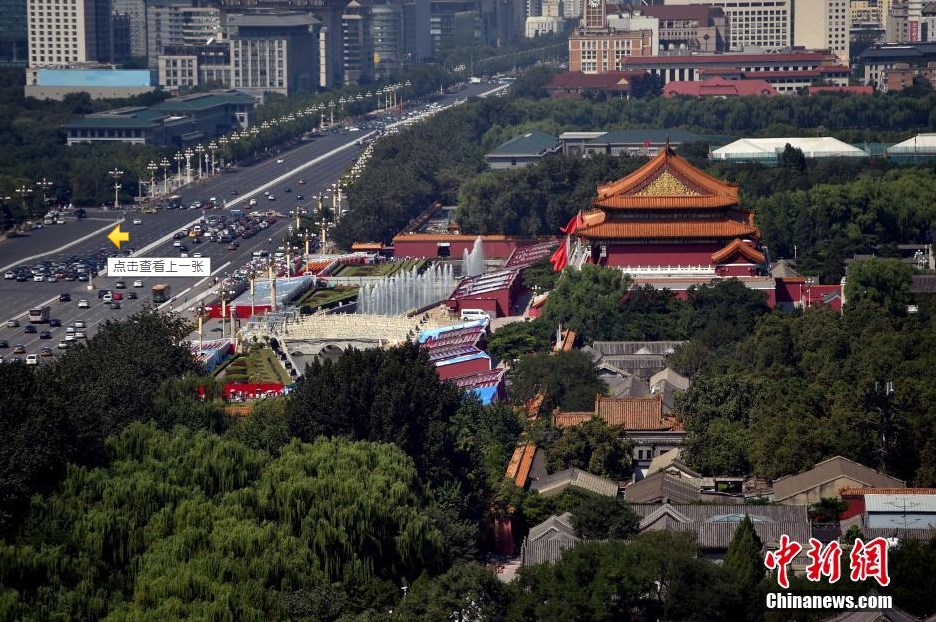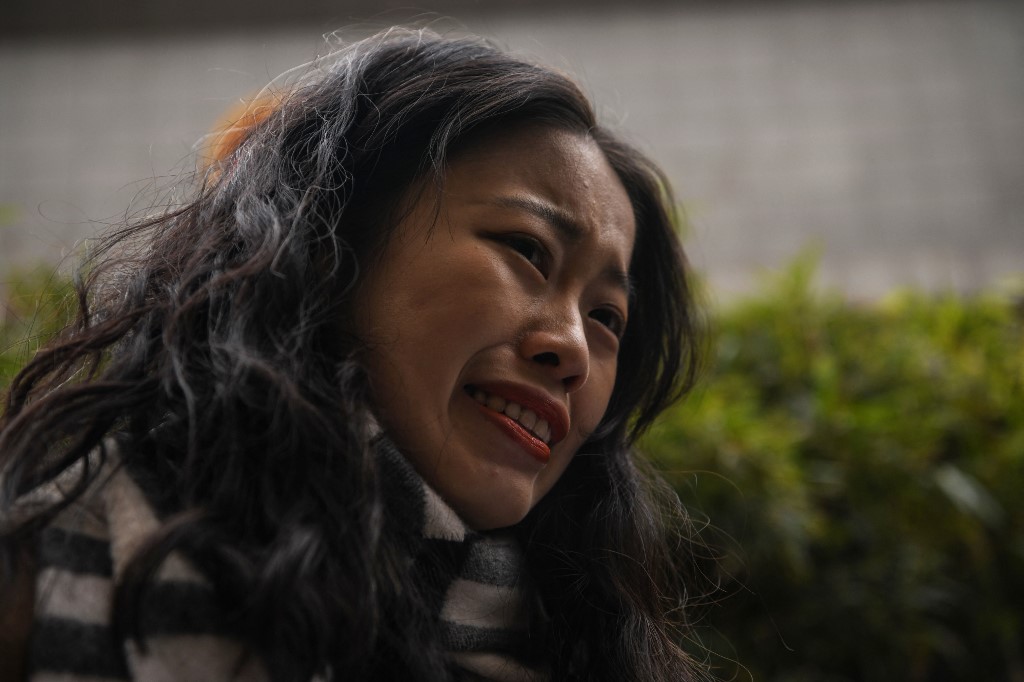By Beiyi Seow
A landmark sexual harassment case in China returned to court Wednesday after an earlier ruling dealt a blow to the country’s fledgling #MeToo movement.

Zhou Xiaoxuan stepped forward in 2018 to accuse state TV host Zhu Jun of forcibly kissing and groping her during her 2014 internship at the broadcaster.
While the case of Zhou, now 29, inspired many others to share their experiences of sexual assault publicly and sparked a social media storm, a court ruled last year there was insufficient evidence to back her allegation.
Zhou appealed, and returned to court for another hearing on Wednesday in Beijing.
“I still feel a little scared and dejected,” she told AFP ahead of the hearing.
“The process of the first trial was a deep secondary injury.”
Police cordoned off long stretches of pavement outside the Beijing No. 1 Intermediate People’s Court ahead of her arrival, with officers logging the details of passers-by.
Zhou told AFP her legal team would focus on getting access to more evidence, such as the police transcripts of interviews with her parents after she reported the incident — which were not included in the earlier trial.
They are also requesting access to surveillance video footage.

Zhou said Zhu was absent from earlier proceedings, and that while he had sued her for defamation, she was not aware of further developments in that case.
A small group of supporters came to wish Zhou luck on Wednesday, holding up signs that said “#MeToo” and balloons spelling out “All the best” in Chinese.
“Four years have passed, and the most important thing is that we have raised this question: When a woman encounters sexual harassment in a closed space, is her pain worth paying attention to?” Zhou said to supporters.
“There may be no answer today, but the most important thing is that we put this question here.”
‘Too difficult’
Zhou, also known by the pseudonym Xianzi, originally sued for a public apology from Zhu and 50,000 yuan (US$7,400) in damages.
Her first hearing in December 2020 drew a large crowd and a significant police presence in Beijing.

Reporters from foreign media outlets including AFP were dragged away by police while filming the scene.
“The process for my case has truly been too difficult,” Zhou told AFP.
“I worry that other victims fear standing up for their rights after seeing what I’ve experienced.”
But she added that with her case, “perhaps the next victim that walks into court can receive more trust”.
Her case against Zhu was originally filed under the “personality rights” law — covering rights relating to an individual’s health and body.
But her lawyers later asked for it to be considered under a new sexual harassment law that was passed in 2020.
Despite that law, many women in China are still reluctant to come forward with harassment charges, and it is rare for cases to make it to court in a legal system that places a heavy burden on the claimant.
The country’s #MeToo movement has stumbled since 2018, when a wave of women published allegations of sexual harassment against university professors.
Threatened at the time by the prospect of an uncontrolled mass movement, internet censors quickly began blocking social media hashtags and keywords.
Support HKFP | Policies & Ethics | Error/typo? | Contact Us | Newsletter | Transparency & Annual Report | Apps
Help safeguard press freedom & keep HKFP free for all readers by supporting our team

LATEST FROM HKFP
HKFP has an impartial stance, transparent funding, and balanced coverage guided by an Ethics Code and Corrections Policy.
Support press freedom & help us surpass 1,000 monthly Patrons: 100% independent, governed by an ethics code & not-for-profit.










